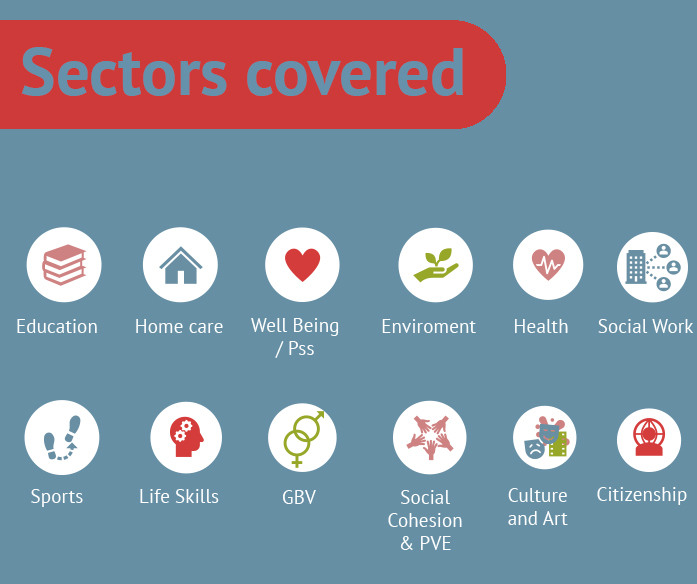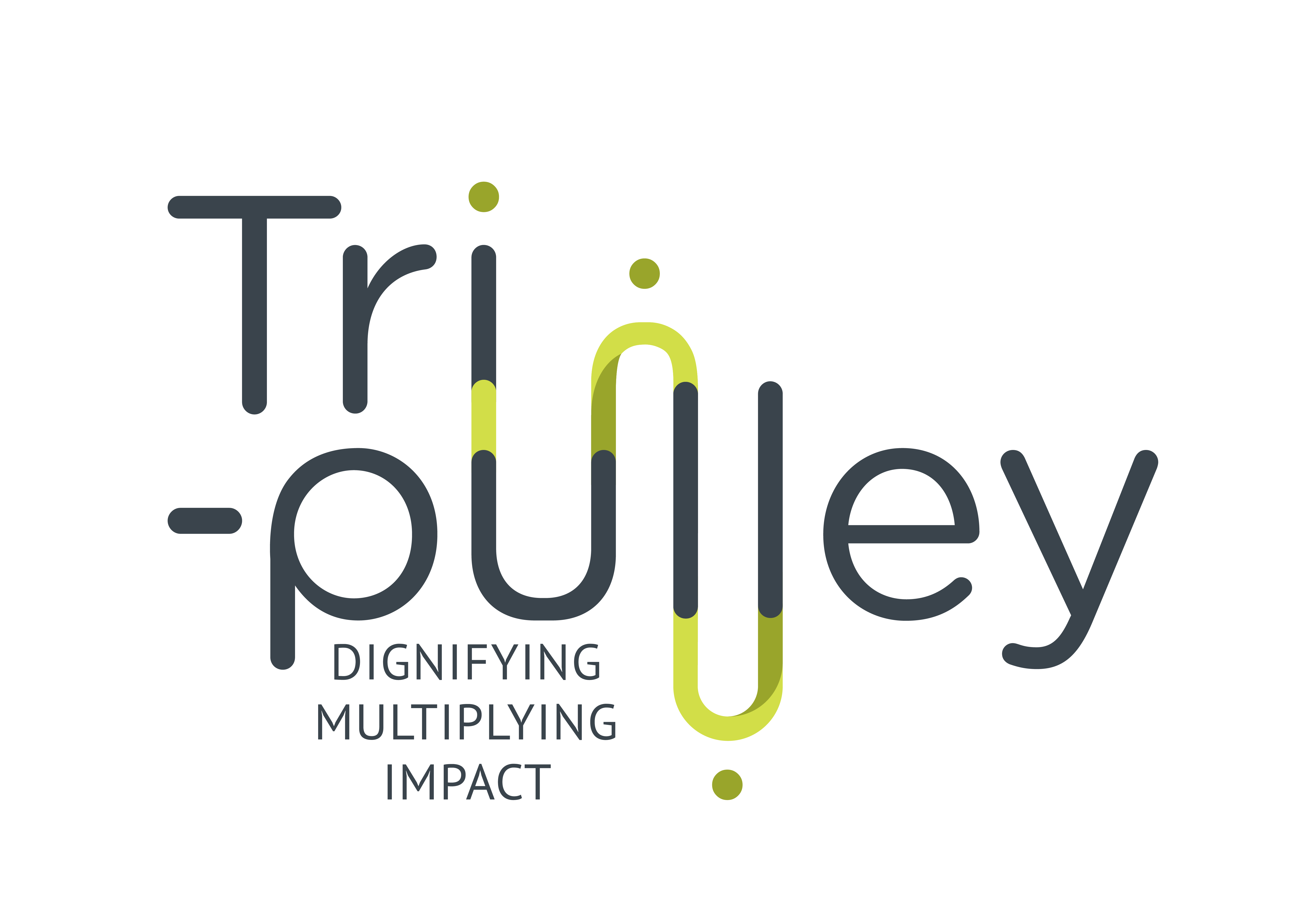Tri-pulley focuses on creating jobs in a variety of social, cultural and environmental sectors
Rational behind the focus on some of the sectors:
Education
- The education sector in Lebanon has been negatively affected by the different political and security episodes the country has faced in the last decades. However, the massive economic crisis that Lebanon is facing since 2019 represents a much more severe collapse threat to education.
- While the world tried to face the repercussions of COVID-19 on education by moving to remote learning, thousands of Lebanese students and teachers were struggling due to the lack of electricity, poor internet infrastructure, and their inability to secure the equipment needed for remote learning such as laptops and tablets that have become unaffordable with the deterioration of the local currency. The Beirut Port explosion was another event that left its traces on the education sector with 300,000 people affected by the explosion including 100,000 children, and around 200 educational institutes damaged.
- With the deepening economic meltdown affecting both the state and households, not only the public schools but also the private schools are striving. Public spending on education is cut as such the public institutions that were already underserved became in a dire state of neglect. The death of a 16 years old high school girl student on November 02, 2022, in Lebanon’s northern city of Tripoli after the partial collapse of a classroom ceiling only shows how dilapidated the education infrastructure is.
- The depreciation of the currency and soaring gas prices pushed teachers, in both private and public institutions, to leave their jobs searching for better-paying jobs mainly outside the country. Those who stayed, are continuously on strikes demanding that the government improve their conditions, especially since they now have additional responsibilities brought on by shrinking staff supply and are reported to be paying for school materials out of pocket. On the other end, families descending into poverty find themselves unable to afford school tuition for their children, and many cut spending on education and place their children in labor to be able to survive. Enrolment in educational institutions dropped from 60 percent in 2020-2021 to 43 percent in the current academic year. 31% of young people are not in education, employment, or training (NEET).
- The emerging issues only come to accumulate on top of the structural problems education in Lebanon has long been suffering from. With an outdated curriculum that was not reviewed since 1997, and teaching methods dependent on memorizing, students are not able to attain quality education nor the skills necessary for the job market.
- Corruption in the public sector had allowed a big number of unqualified personnel to be appointed as teachers. In addition to the enormous financial costs these have burdened the sector with, and the poor quality of education they offer to the students, many do not even attend their jobs regularly.
- The education system does not offer professional guidance and planning to its students, thus there is a mismatch between the demand in the job market and the number of graduates in different fields. On the other hand, the political sectarian capture of educational institutes, both in the private and the public sector, has prevented the solidification of unified civic education among Lebanese students, and on many occasions, the universities in Lebanon became battlefields for students embracing different political views. The recent economic crisis only came to tighten the control of the political parties on the public schools. Lebanese political parties in different regions have exploited these schools’ need for supplies and public services to present themselves as saviors in the absence of the state.
- The realities of the education sector in Lebanon and its collapse place children and youth in the country at great risk. Dropping out of education, in addition to the emotional toll it has on young people, also shapes their life paths and their employment prospects leaving them vulnerable with limited or no opportunities. With complete generations losing access to education or attaining poor-quality education furthers inequality and imposes serious implications for future growth and social cohesion in the country.
Gender Equality
- The economic meltdown has negatively affected women, already struggling from structural inequalities, both socially and economically to a greater degree than men.
- The rising poverty pushed thousands of families to withdraw their children and mainly girls out of schools to spare funds for basic needs.
- Gender Based Violence has risen since the onset of the crisis along with the increase of household stressors.
- In Lebanon, where wage work is traditionally reserved for men, who are usually considered family breadwinners, women’s positions are the first to be eliminated. With a huge number of women forced out of employment and a bigger number losing the prospect of getting their first employment opportunity, women are in peril.
- Women employees are concentrated in low-paid jobs requiring fewer skills or in the sectors hit most by the crisis like banking, healthcare, and education, their jobs were the first to be eliminated.The women’s unemployment rate jumped from 14.3 percent before the crisis to standing at 32.7% in comparison to the male rate (28.4%) according to the Labour Force Survey published in January 2022 .
- As more women are pushed into poverty, negative coping mechanisms are on the rise, with undereating, less access to healthcare, increased early marriages, child labor, and employment under unfair conditions or in indecent jobs.
- While families struggle to secure basic needs from food, housing, fuel, and medicines women are pushed to spare necessary health care and even menstrual hygiene materials. A recent survey in Lebanon showed that 76.5% of women have difficulty accessing menstrual products.
- Plan-International-Lebanon and Fe-Male Period Poverty in Lebanon. Beirut: Plan International (2021)
- https://arabstates.unwomen.org/en/digital-library/publications/2020/10/report-women-on-the-verge-of-an-economic-breakdown-in-lebanon
- https://reliefweb.int/report/lebanon/lebanons-economic-update-october-2021
- https://www.unicef.org/lebanon/stories/new-lebanon-how-country-turning-series-negative-coping-strategies-survive
- file:///Users/doha/Downloads/GBVIMS_%20Q1%202022_thematic%20report_Final.pdf
- https://arabstates.unwomen.org/sites/default/files/Field%20Office%20Arab%20States/Attachments/Publications/2020/10/Lebanons%20Economic%20Report%20Updated%201110%20FH.pdf
- https://www.ilo.org/beirut/media-centre/news/WCMS_844831/lang–en/index.htm
Peace Building & Violence Prevention
- The Lebanese population’s well-being is undoubtedly seriously affected by the ongoing ever-expanding economic crisis that emerged in 2019 and was later exacerbated by the toll of the COVID-19 spread, the Beirut Port Explosion of August 2020, and the shocks that the war in Ukraine has brought to the international markets. Gallup Global Emotions Report of 2022 has ranked Lebanon the angriest country in the world. Lebanon’s population is also ranked second after Afghanistan’s on the list of Highest Negative Experiences Worldwide (1).
- The emerging events along with a history crowded with unresolved grievances from the Lebanese civil war, external wars, and rooted political sectarian rivalry manifesting itself into armed escalations from time to time, have deeply harmed the Lebanese State and its citizens. The country’s entrenched corruption nurtured by the political elites, who enjoy impunity, has exhausted resources and degraded the infrastructure. The State is weakening, its role has become marginal, institutions are collapsing, and justice and rule of law are eroding. Frustration and the absence of opportunities govern the scene, and citizens unable to access basic services and rights find themselves entangled in violence. Murders in Lebanon have risen by 68 percent in July of 2022, compared to July 2021. Suicides rose by 42 percent. The information comes from a Beirut-based research center (2).
- Within this setting, the suffering of historically deprived marginalized areas and vulnerable groups (especially youth) is even worse. According to the follow-up Labour Force Survey (LFS) 2022, by January 2022 unemployment was at 29.6% and Youth Unemployment at 47.8%.The crisis is forcing young people to drop out of school and engage in ill-paid, irregular work just to survive and help feed their families. The report also says that 31 percent of young people are not in education, employment, or training. Enrolment in educational institutions dropped from 60 percent in 2020-2021, to just 43 percent for the current academic year (3). Youth in Lebanon are left in desperation and with neither choices nor prospects. Unsurprisingly, 77 percent of Lebanon’s youth want to leave according to a recent survey revealed by Foreign Policy ( December 26, 2021) (4).While thousands of youth, especially those with high skills and credentials, have managed to leave the country during the last period, the majority are still stuck. These who are unable to leave the country in a legal way especially in Tripoli, are risking their lives trying to leave through the sea. The increased incidents of boats being capsized and wrecked while carrying immigrants from the beaches of Tripoli did not stop more venturers reflecting how desperate people are to leave (5).
- The socioeconomic, psychological, and institutional repercussions of the crisis constitute a fertile ground for citizens and especially youth, to becoming perpetrators or victims of violence and crime, or at high risk of being radicalized especially in areas where radical groups have been active in the past years.
- https://img.lalr.co/cms/2022/06/29185719/2022-Gallup-Global-Emotions-Report-2022_compressed.pdf
- https://www.mnnonline.org/news/lebanon-murder-suicide-rates-skyrocket/
- https://www.ilo.org/wcmsp5/groups/public/—arabstates/—ro-beirut/documents/publication/wcms_844837.pdf
- https://foreignpolicy.com/2021/08/09/lebanon-terminal-brain-drain-migration/
- https://www.washingtonpost.com/world/2022/05/06/migration-lebanon-economic-crisis/
Job Inclusion for People with Disabilities
- Exclusion of people with disabilities from the workplace leads to an estimated US$1.37-1.94 trillion annual loss in GDP globally and is the most significant for individuals with intellectual disabilities (ID) [1], as they are 3 to 4 times less employed than peers with no disability, and less likely to be employed competitively than peers with other disabilities [2].
- Barriers to employment faced by youth with ID are complex and multi-levelled, including policy, workplace and educational limitations, and require multi-level interventions. Several programs have shown promising results in increasing job readiness among youth with ID [3, 4], however, such models have not yet been researched or experienced in less developed countries such as Lebanon, where the socio-political contexts of employment and disability can vary significantly [5].
- The Lebanese Law 220/2000 for the rights of people with disabilities tackels discriminatory recruitment in the workplace through a 3% quota with financial penalties for non-adherence [6], but its enforcement remains severely lacking [7]. Approximately 80% of persons with disabilities in Lebanon are not or have never been employed, and the number is significantly higher for people with ID [8].
- The prominent perceptions of persons with disabilities in Lebanon is unfortunately based on a medical-charity view, which focuses on the perceived cognitive ‘deficiency’ and does not recognize the contribution of these individuals to society and/or economic life. Persons with disabilities are typically oriented to work in sheltered workshops providing artisanal work (such as chocolate decorating or candle making), with no substantial financial compensation for their work and no real opportunities for vocational choice or career advancement [9].
- Lebanon has also not yet signed the UN Convention on the Rights of People with Disability, which sets a legal framework ensuring human rights and fundamental freedoms for all persons of all abilities.
- The current politico-economic crisis exacerbated by the pandemic is affecting all segments of society in Lebanon but not everyone is affected equally. The impacts of the crisis are differentially distributed, and as expected, the most marginalized individuals are the ones who suffer the most [9].
- The Ministry of Social Affairs, which usually contracts organizations to provide services for people with disabilities, has not released the due funds for more than a year now. This has caused these organizations to take emergency measures to persist in their work such as lay-offs, downsizing and intermittent closures, which ultimately affected beneficiaries, and some centers have been forced to shut down [9].
- The explosion of August 4 left around 800 new people with disabilities, and in a few minutes the lives of those people were turned upside down. Not only do they have to bear the economic situation, but also they suffer from the long-term trauma and all the psychological toll of their new disability. Their ability to continue their jobs were probably affected.
- Lebanon has not yet embraced a model of inclusive education, which leaves children with learning disabilities with limited options in education. UPT inclusion program with whom we are partnering, as well as a new program at AUB, and are the only university programs for people with ID.

- Metts, R.L., Disability issues, trends and recommendations for the World Bank. 2000, World Bank.
- Verdonschot, M.M.L., et al., Community participation of people with an intellectual disability: A review of empirical findings.Journal of Intellectual Disability Research, 2009.
- Kaehne, A., Project SEARCH UK – Evaluating Its Employment Outcomes.Journal of Applied Research in Intellectual Disabilities, 2016.
- Engelbrecht, M., L. Shaw, and L. van Niekerk, A literature review on work transitioning of youth with disabilities into competitive employment.African journal of disability, 2017.
- Memari, A.H. and S. Hafizi, People With Intellectual Disability and Social-Political Life Participation: A Commitment to Inclusive Policies in Less Developed Countries.Journal of Policy and Practice in Intellectual Disabilities, 2015.
- Law 220/2000 on the Rights of Persons with Disabilities in Lebanon 2000.
- Combaz, E. Situation of persons with disabilities in Lebanon. K4D Helpdesk Report.2018 July 15.
- United Nations Economic and Social Council, Committee on Economic, Social and Cultural Rights: Concluding observations on the second periodic report of Lebanon. 2016.
- Khawam, G., Job readiness among youth with intellectual disability in Lebanon, in Centre for Development and Emergency Practice (CENDEP). in progress, Oxford Brookes University.


